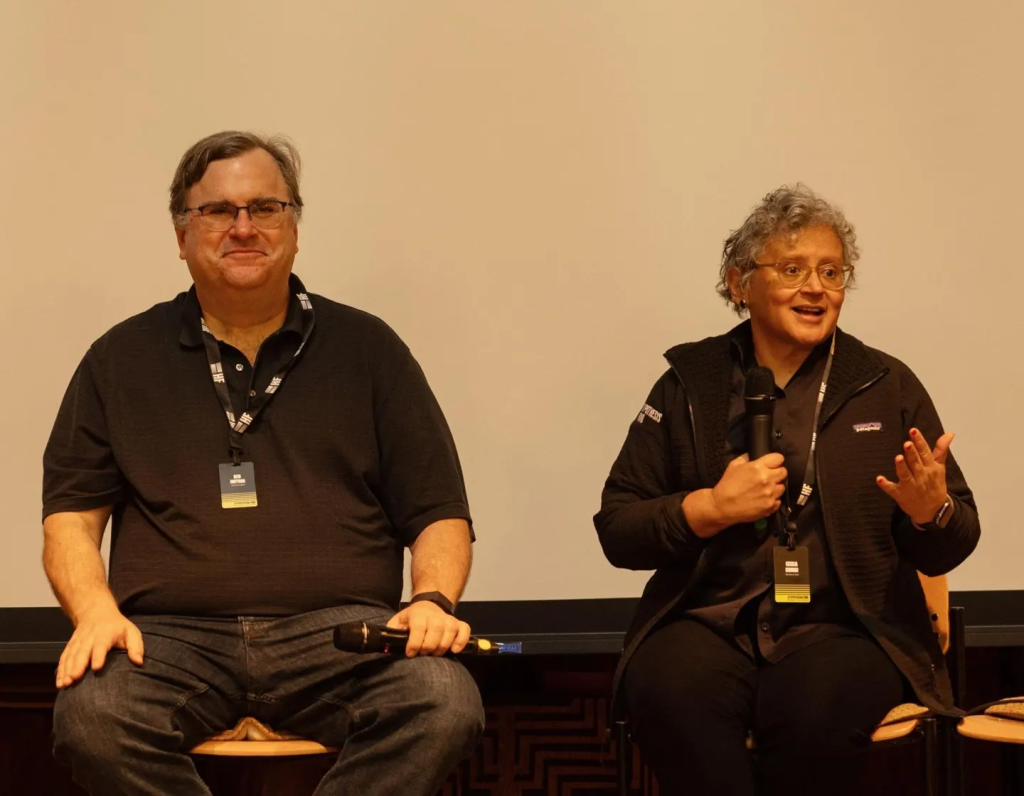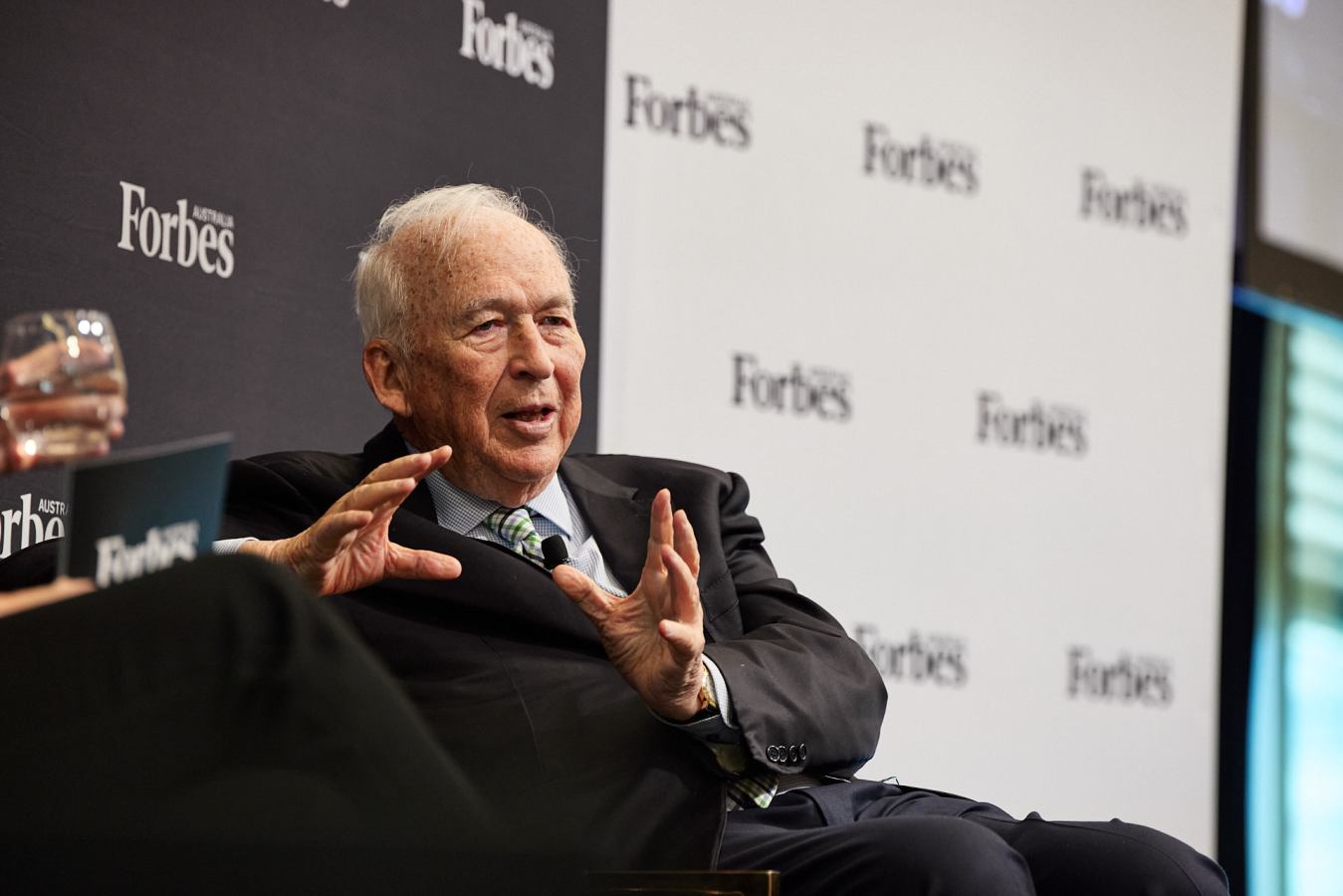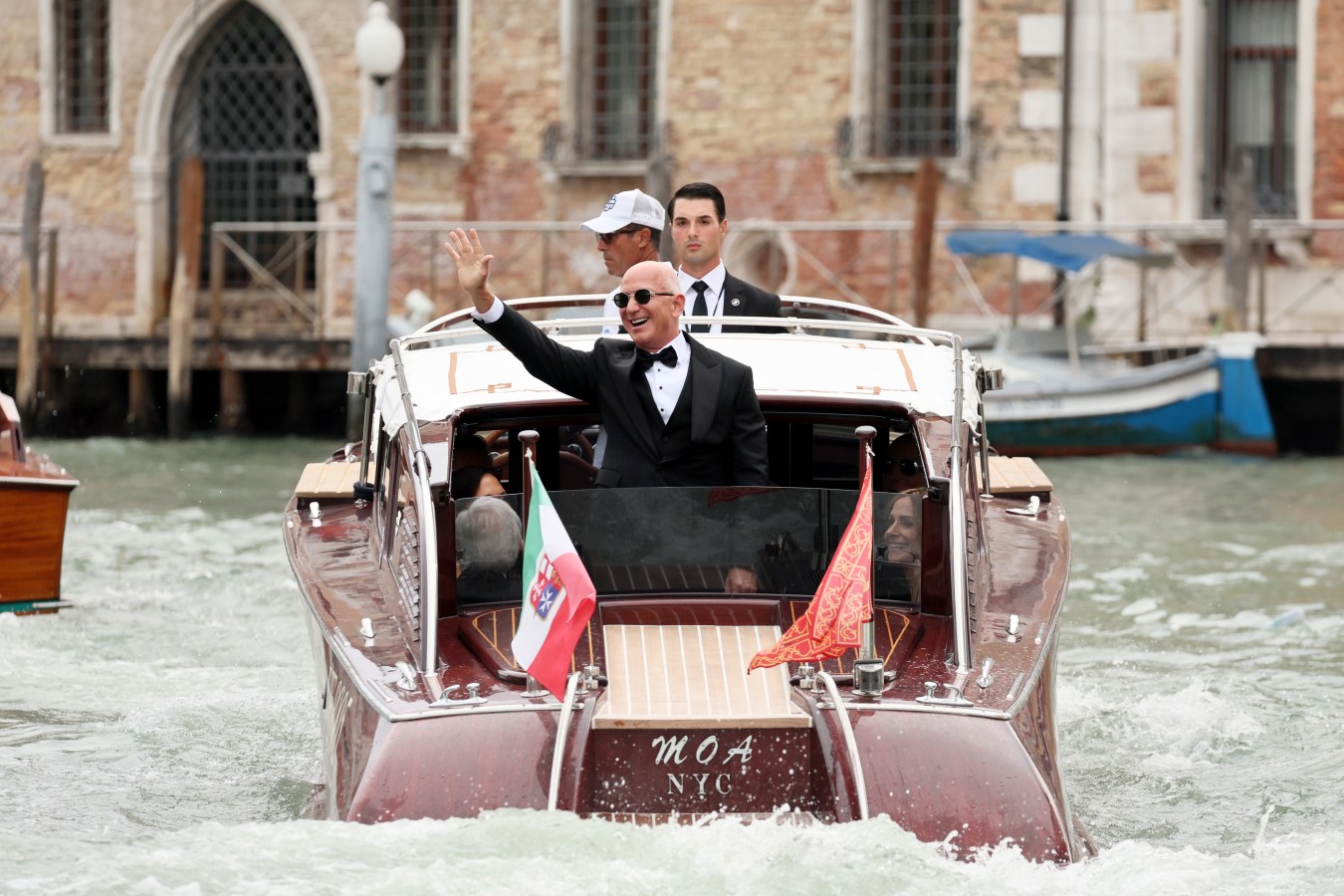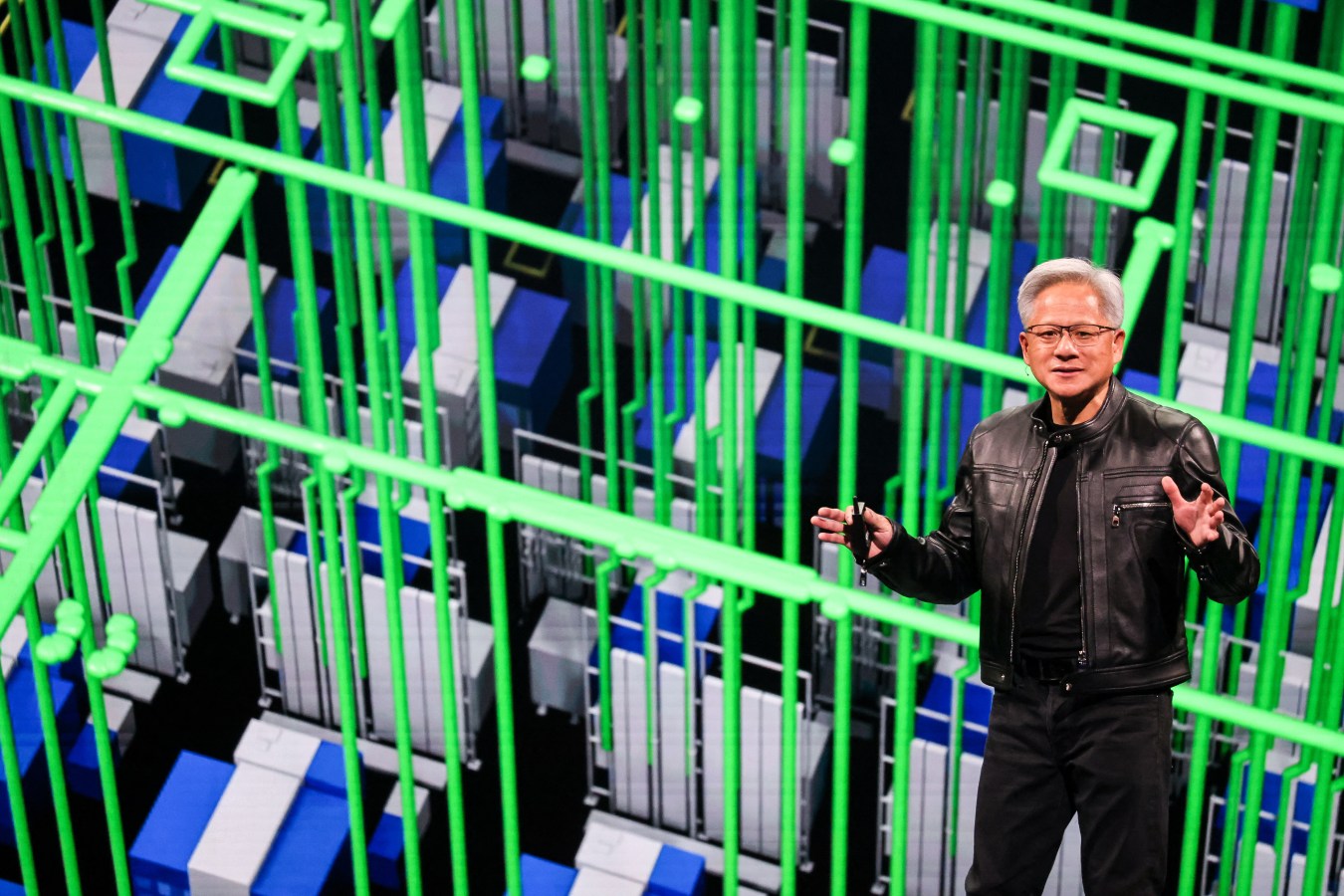By organizing challenges and pre-screening small nonprofits, Lever for Change has helped a handful of billionaires shift some giving towards global grassroots organizations.

In early 2022, Cecilia Conrad received a call from representatives of MacKenzie Scott’s Yield Giving, the billionaire’s main philanthropic vehicle. “We were thinking about doing something that’s a little different from your standard model,” she recalls them saying, just before they pitched the idea of an open call in which any nonprofit could make their case for funding from billionaires in a competition with hundreds of winners.
There was a near-instant “alignment of interest,” explained Conrad, the CEO of a 20-person Chicago-based nonprofit, speaking to Forbes in front of a sea of books arranged on a floor-to-ceiling wood shelf.
Her organization, Lever for Change, was set up with democratization of philanthropy in mind. Its goal is to help billionaires and wealthy donors give away their money to more grassroots organizations outside their immediate network of alma maters, medical centers and museums.
The conversation began a multiyear partnership between Scott’s Yield Giving and Lever for Change around an “Open Call” competition in which potential grantees sent in over 6,300 submissions.
It was the first time Scott had nonprofits come to her rather than the other way around. The process included nearly a year of planning and several months of judging.
It culminated in Scott’s $640 million in unrestricted donations to 250 winners of her “Open Call,” managed by Lever for Change and announced last month.
“Getting on her radar is a challenging thing, and typically not an open process,” says Megan Peterson, executive director of Gender Justice, a gender equity and reproductive freedom nonprofit that received $2 million from Scott’s Open Call challenge. “To have this opportunity to put ourselves forward, it was kind of a no-brainer to apply.”
Scott is only one of the billionaires working with Lever for Change to help give away their money.
The nonprofit has worked with LinkedIn cofounder Reid Hoffman, Tulsa megadonor Lynn Schusterman, Melinda Gates, Ripple’s Chris Larsen and Penny Pritzker to dole out over $2.2 billion altogether, through grants averaging less than $10 million to causes including refugee aid and gender and racial equity.
In Lever for Change’s more typical challenges, nonprofits apply online for a one-time, unrestricted grant, are evaluated by multiple reviewers over several rounds and are then given a final “score” based on criteria from the sponsoring donor.
Conrad likens the process to investors’ “due diligence.” The donors then pick the ones to which they want to donate.
Hoffman likes it because it frames philanthropy more like Silicon Valley investing, likening nonprofit founders to entrepreneurs and donors to investors.
“Investing is not like, ‘I have an idea that there should be a company that does X and I go find it.’ Instead, I look for the entrepreneurs to come to me and go, ‘Oh wow, that, that idea number three, that’s the one that is really interesting and can actually make a very big difference,’” Hoffman, a founding board member of Lever for Change, said.
The idea for Lever for Change came out of a 2016 challenge from Chicago’s $8 billion (endowment) MacArthur Foundation that solicited applications for a single $100 million grant.
Conrad helped lead the initiative—she had joined MacArthur in 2013 after 30 years as an economics professor at such universities as Duke, Pomona and Barnard. Before that, she spent a stint as a Federal Trade Commission economist.
During her time at MacArthur, she found she much preferred a more entrepreneurial approach to philanthropy and thought others would feel the same. She helped convince the MacArthur Foundation to let her try to start a new group with their backing.
A breakthrough came in 2018 when she went to the LinkedIn offices to pitch Hoffman on the concept.
He agreed to join as a founding member, and helped come up with the new organization’s name, based on Archimedes’ Law of the “Lever”—the idea that small forces can move great weights if placed correctly.
One idea led to the next, and it was agreed that in order to mesh a start-up spirit with larger institutional support, Lever for Change would be founded as a spinout from the MacArthur Foundation, which gave it $20 million in seed funding.
Later that year, Lever for Change launched its first challenge, a $10 million civic infrastructure grant for the South or West side of Chicago funded by billionaire investor and Hyatt heir Penny Pritzker’s Pritzker Traubert Foundation.
In 2020, Lever for Change launched its “Bold Solutions Network,” which started as a simple list on Lever for Change’s website of finalists from the Pritzker-sponsored challenge—and has since grown to a network of 116 nonprofits that received top scores in Lever for Change’s challenges.
Approximately half of the funding Lever for Change has facilitated went through competitive processes like Scott’s Open Call and the challenges. The other half funneled through the “Bold Solutions Network.”
Hoffman is an outspoken champion of Lever for Change’s mission and contributed $5 million to Lever for Change’s operational efforts through his donor-advised fund, in addition to an $11 million pledge over the next two years.
He says he never would have thought to support, for example, maternal and infant health causes (one of Lever for Change’s challenges)—even though he knew they would have a “high impact per dollar”—because he believed he didn’t have what it took to fund them effectively, unless someone like Lever for Change came to him with the right “network and knowledge.”
Lever for Change operates on their seed funding from MacArthur, Hoffman’s and other operational donations and fees for running the challenges.
The nonprofit has some $15 million in assets and brings in $1-3 million a year in revenue, largely from those fees ($1.5 to $2 million for the typical challenge, a Lever for Change spokesperson said).
Lever for Change has now run 13 challenges, including a gender equality challenge in 2021 sponsored mostly by Melinda French Gates with additional funding from fellow billionaires Lynn Schusterman and MacKenzie Scott.
The challenge was what initially connected Scott’s team with Lever for Change, after which they worked together to kickstart the “Open Call” model for batch funding in 2021—the first time Lever for Change would award grants to a cohort of organizations instead of to one main awardee.
But changing a centuries-old philanthropic system where billionaires’ donations have almost always gone to storied institutions within their network can be difficult.
Conrad said the organization, which has screened 11,000 organizations of which 472 received funding, knows that billionaires and wealthy donors do want to distribute their wealth towards social change but that it continues to be “slow in happening.”
Billionaires and wealthy donors “want to feel certain that they are making an investment in something that’s going to really yield impact, but they can’t be experts in everything,” Conrad said. “So there’s this tendency to rely on what you know, or where you already have some knowledge or trust or a network you’re already embedded in, and not to let that grow.”
That’s why you see dozens of billionaires giving hundreds of millions to their alma maters or huge hospital systems.
Part of the issue, according to Karen Spencer, founding member of philanthropic network Catalyst 2030, is that there is a “discrepancy between intention and action,” where billionaires and wealthy donors often intend to fund a more diverse range of local nonprofits but have not yet shifted their giving in a significant way.
For example, even though Hoffman is on Lever’s board, most of his largest gifts continue to go toward the same organizations they always have: The Barack Obama Foundation and the Chan Zuckerberg Biohub, to name two that have received more than $20 million in funding from Hoffman’s Aphorism Foundation, which had just over $1 billion in assets as of the end of 2022.
Harvard, MIT and Columbia have also received multimillion-dollar gifts from Hoffman, although he does give to a wide range of nonprofits.
Lever for Change sees its work as part of a broader shift in philanthropy, according to Conrad.
The nonprofit is one of several founded in the last decade that aim to help billionaires solicit and vet smaller nonprofits, curating “shovel-ready”—and hopefully diverse—networks of potential grant recipients.
Blue Meridian, for example, founded in 2016, touts its investor-minded approach even more explicitly: grants are labeled “investments” that go through “funds” with specific focus areas like social mobility and criminal justice reform.
The organization has also partnered with several similar funders: Scott, Schusterman, the Gates Foundation, Steve Ballmer and Sergey Brin.
Other peers include the TED foundation’s Audacious Project (founded in 2018), Co-Impact (founded in 2017) and Borealis Philanthropy (founded in 2014).
This article was first published on forbes.com and all figures are in USD.


